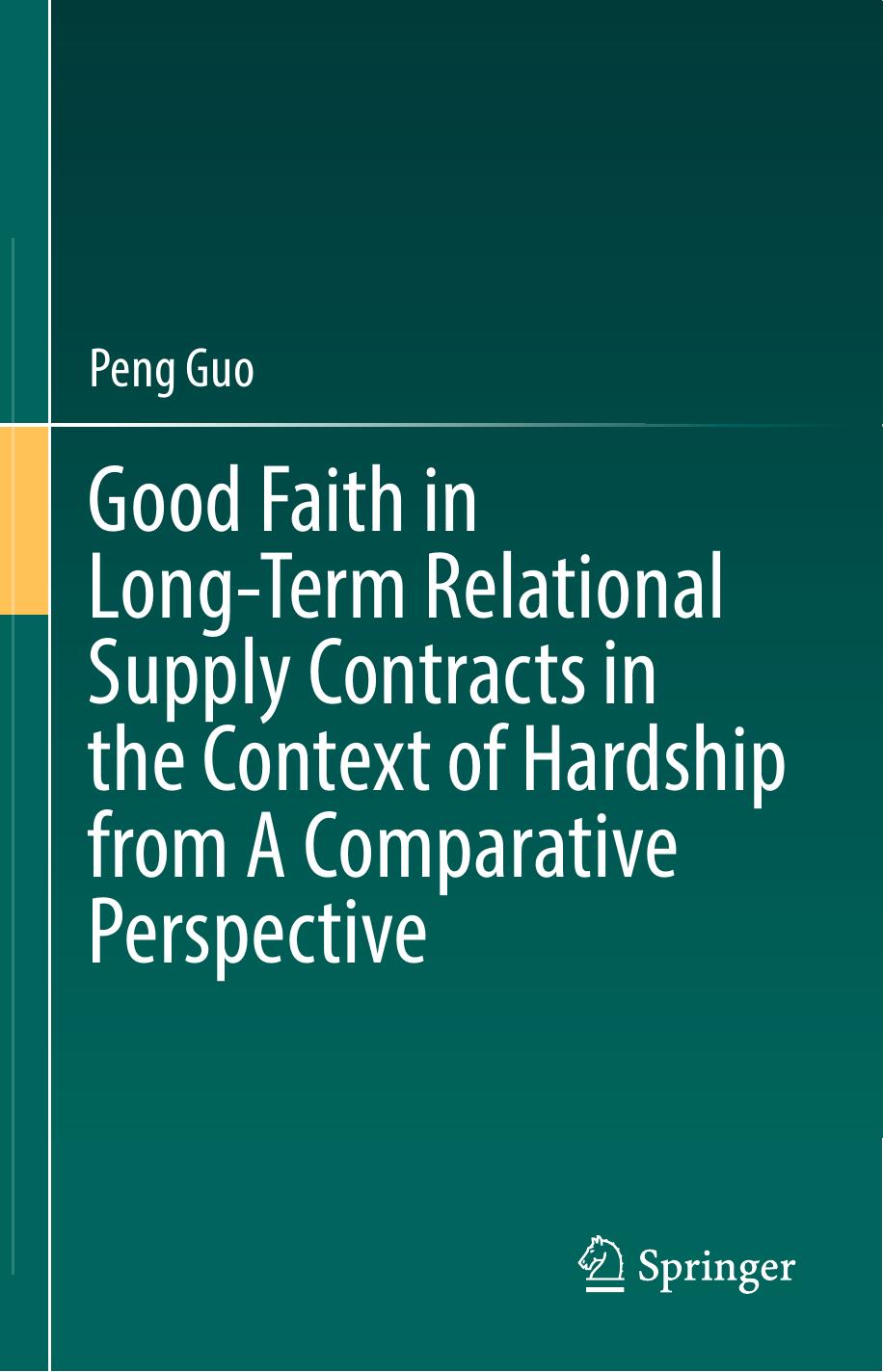Good Faith in Long-Term Relational Supply Contracts in the Context of Hardship from A Comparative Perspective by Peng Guo

Author:Peng Guo
Language: eng
Format: epub, pdf
ISBN: 9789811655135
Publisher: Springer Singapore
It seems that the parties could eventually free themselves from the restraints which require them to act in accordance with the principle of good faith, but they will risk losing the protection and fairer consequences that the UNIDROIT Principles purport to offer.283
Fairness is another fundamental idea of the UNIDROIT Principles,284 so any attempt to exclude the principle of good faith may cause conflict between the two fundamental tenets of the UNIDROIT Principles.
What if, instead of expressly excluding the principle of good faith, the parties purport to re-define it in the light of the special purpose of their own contract? And if they could, to what extent, would they be free to do so?285
It seems that the parties are allowed to adjust the principle of good faith to fit their contract, given their rights conferred by Article 1.5. The extent to which they are free to re-shape the principle of good faith depends on the nature of their contract and the surrounding circumstances thereof. It is almost impossible to give a clear and unequivocal answer to this question, as it is a matter of contract construction. Nevertheless, in the worst case where the partiesâ re-definition of the principle of good faith is fundamentally inconsistent with the original spirit of the UNIDROIT Principles, Bonellâs proposal mentioned above should apply.
After considering the possibility of the parties opting out of the principle of good faith itself, another question which is worth examining is whether all the special applications of the principle of good faith in the UNIDROIT Principles can be excluded or limited by the parties.286 The answer is not that simple. This can be done in some cases but not in others. Where the articles contained in the UNIDROIT Principles directly or indirectly restrict the partiesâ freedom of contract with respect to, for instance, fraud and exemption clauses,287 it cannot be done in the light of their mandatory nature authorised by the UNIDROIT Principles.288 However, it can be done in instances where the articles do not provide such restrictions, since the articles are only default rules or background law which purport to apply only where there are no specific terms in the contract in relation to the issues covered by those articles.289 Although the solutions provided by those articles which do not impose limitations on the parties may be regarded as the most appropriate for the resolution of disputes, the parties can still freely and definitely contemplate having a different duty under the contract and having special written terms added to their contract which can meet their particular expectations and needs in a way that better suits their needs.290
Nevertheless, it should be kept in mind that all the specific applications of the principle of good faith, like the principle of good faith itself, can eventually be excluded or limited by the parties in the light of the soft law nature of the UNIDROIT Principles.
Download
Good Faith in Long-Term Relational Supply Contracts in the Context of Hardship from A Comparative Perspective by Peng Guo.pdf
This site does not store any files on its server. We only index and link to content provided by other sites. Please contact the content providers to delete copyright contents if any and email us, we'll remove relevant links or contents immediately.
Zero to IPO: Over $1 Trillion of Actionable Advice from the World's Most Successful Entrepreneurs by Frederic Kerrest(4516)
Machine Learning at Scale with H2O by Gregory Keys | David Whiting(4292)
Never by Ken Follett(3937)
Harry Potter and the Goblet Of Fire by J.K. Rowling(3848)
Ogilvy on Advertising by David Ogilvy(3604)
Shadow of Night by Deborah Harkness(3359)
The Man Who Died Twice by Richard Osman(3072)
Book of Life by Deborah Harkness(2931)
The Tipping Point by Malcolm Gladwell(2914)
Will by Will Smith(2908)
0041152001443424520 .pdf by Unknown(2843)
Purple Hibiscus by Chimamanda Ngozi Adichie(2824)
My Brilliant Friend by Elena Ferrante(2824)
How Proust Can Change Your Life by Alain De Botton(2805)
How to Pay Zero Taxes, 2018 by Jeff A. Schnepper(2646)
Hooked: A Dark, Contemporary Romance (Never After Series) by Emily McIntire(2550)
Rationality by Steven Pinker(2352)
Can't Hurt Me: Master Your Mind and Defy the Odds - Clean Edition by David Goggins(2323)
Borders by unknow(2303)
